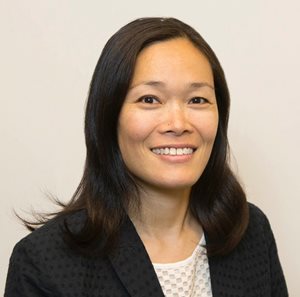"Every community can be a place of opportunity," shares Steve Barbier, senior relationship manager for the Western Region at NeighborWorks America. The tenet underscores NeighborWorks' decision several years ago to better understand how to be of service to Native communities.
Erich Nakano, executive director of Little Tokyo Service Center (LTSC), says his journey to housing and community development began with three events. An activist whose parents sought to amplify stories about Japanese internment in the United States, Nakano says friends, family and fellow college students all shined lights on a path to working with the community he loved.
The 1970s
 Jennifer Sun's parents had strong opinions about what her career path should be. Her mom wanted her to be a teacher. Her father wanted her to have a corporate job. They'd fled Communist China for Taiwan and left Taiwan for the United States, and security, financially and otherwise, was paramount to them.
Jennifer Sun's parents had strong opinions about what her career path should be. Her mom wanted her to be a teacher. Her father wanted her to have a corporate job. They'd fled Communist China for Taiwan and left Taiwan for the United States, and security, financially and otherwise, was paramount to them.
Maria Garciaz came to NeighborWorks Salt Lake as a volunteer. She’d been working in juvenile court as a probation officer, sometimes with gang members, and the organization asked her to offer advice on a youth program to help teens build life skills. “I fell in love with the work,” she says. When YouthWorks finally came into being, she submitted an application to head the program. That was her path to community organizing.
Leslie Reid was born into a family of two: It was her and her mother, alone in New York, in need of better prospects. Reid spent time in foster care while her mother went to find them a home. Her family grew exponentially when she rejoined her mother, who had found work in Boston with a community of social workers. They'd started an organization for homeless youth, Reid says, and they lived together and worked together, providing shelter and services.
Closing the homeownership gap won't happen overnight. But working to preserve affordable housing and collaborating with partners can make a difference, said Susan M. Ifill, executive vice president and chief operating officer for NeighborWorks America. Ifill spoke on a panel, Narrowing the Homeownership Gap, in December, alongside leaders from Fifth Third Bank at the Black and Latino Summit, which the National Minority Community Investment Co-operative hosted.
Kwe, Bree Herne, iónkiáts. Akwesasne nitewakie:non. Kanien'kehá:ka Wastòn:ke non:we kì:teron.
"It's important to create space to have difficult conversations," says Marietta Rodriguez, president and CEO of NeighborWorks America. Rodriguez joined such a conversation this week as part of a panel of leaders, all women of color, to discuss racial inequity and allyship – a relationship where individuals work to foster inclusion and support marginalized people or groups, instead of standing by silently.

